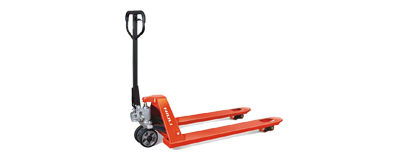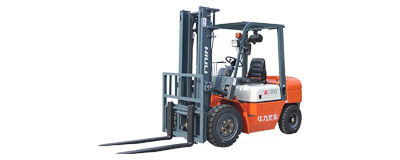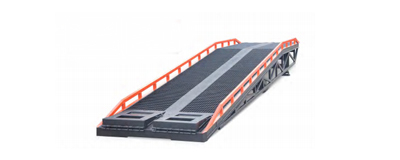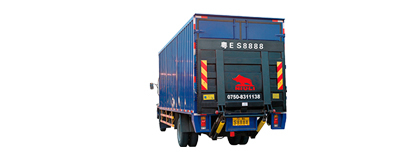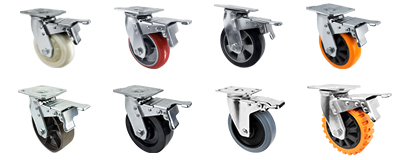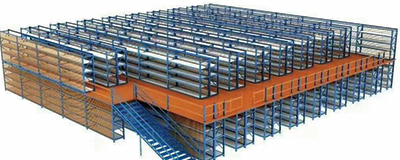Internal combustion (IC) forklifts are a staple in many industries due to their power, durability, and versatility. However, as with any heavy equipment, there are several key concerns that users and businesses must address to ensure optimal performance, safety, and cost-effectiveness. Among these concerns, fuel efficiency and operating costs and emissions and environmental impact stand out as two of the most critical topics. This article delves into these areas, providing a comprehensive overview of what makes IC forklifts both indispensable and challenging in modern industrial settings.
1. Fuel Efficiency and Operating Costs
One of the most pressing concerns for businesses using IC forklifts is fuel efficiency. IC forklifts are powered by diesel, gasoline, or liquefied petroleum gas (LPG), and their fuel consumption directly impacts operating costs. With fluctuating fuel prices, companies are increasingly focused on maximizing fuel efficiency to keep expenses in check.
Fuel Consumption
IC forklifts are known for their ability to handle heavy loads and operate in demanding environments, but this comes at the cost of higher fuel consumption compared to electric forklifts. Diesel engines, for example, are favored for their torque and durability but tend to consume more fuel, especially under heavy loads or in continuous operation. Gasoline and LPG engines offer a balance between power and fuel efficiency, but their consumption rates can still be significant depending on usage patterns.
To address this, manufacturers are continually innovating to improve engine efficiency. Advanced fuel injection systems, turbocharging, and engine management technologies have been introduced to reduce fuel consumption without compromising performance. For businesses, choosing the right engine type and ensuring proper maintenance can significantly impact fuel efficiency.
Operating Costs
Beyond fuel consumption, the total operating costs of IC forklifts include maintenance, repairs, and downtime. Regular maintenance is essential to keep the engine, transmission, and hydraulic systems in good working condition. Neglecting maintenance can lead to increased fuel consumption, reduced performance, and costly repairs.
Downtime is another critical factor. When an IC forklift breaks down, it can disrupt operations and lead to lost productivity. To minimize downtime, businesses must invest in preventive maintenance and ensure that operators are trained to identify potential issues early. Additionally, having a reliable supply of spare parts and access to skilled technicians is crucial for keeping IC forklifts operational.
Strategies to Reduce Costs
● Regular Maintenance: Scheduled servicing of engines, filters, and hydraulic systems can improve fuel efficiency and extend the lifespan of the forklift.
● Operator Training: Proper training can help operators use the forklift more efficiently, reducing unnecessary fuel consumption.
● Fuel Management Systems: Implementing systems to monitor and optimize fuel usage can lead to significant savings over time.
2. Emissions and Environmental Impact
As environmental regulations become stricter and businesses strive to reduce their carbon footprint, the emissions and environmental impact of IC forklifts have come under scrutiny. IC forklifts emit pollutants such as carbon dioxide (CO2), nitrogen oxides (NOx), and particulate matter, which contribute to air pollution and climate change.
Compliance with Regulations
Governments and regulatory bodies worldwide have introduced stringent emissions standards to limit the environmental impact of IC engines. For example, the U.S. Environmental Protection Agency (EPA) Tier 4 standards and the European Union’s EURO VI regulations set limits on the amount of pollutants that engines can emit. Compliance with these standards is mandatory for manufacturers, and businesses must ensure that their forklifts meet the required criteria.
Non-compliance can result in fines, restrictions on use, and damage to a company’s reputation. As a result, many businesses are transitioning to cleaner technologies or retrofitting their existing IC forklifts with emission control systems.
Environmental Concerns
The environmental impact of IC forklifts extends beyond regulatory compliance. Companies are increasingly aware of their corporate social responsibility (CSR) and the need to adopt sustainable practices. IC forklifts, particularly those powered by diesel, are often seen as less environmentally friendly compared to electric models. This perception has led to a growing interest in alternative fuels and hybrid technologies.
LPG-powered forklifts, for instance, produce fewer emissions than diesel or gasoline models and are considered a cleaner option. However, they still emit CO2 and other pollutants, albeit at lower levels. For businesses operating in indoor environments, such as warehouses, the air quality impact of IC forklifts is a significant concern.
Strategies to Reduce Environmental Impact
● Adopting Cleaner Fuels: Switching to LPG or compressed natural gas (CNG) can reduce emissions and improve air quality.
● Retrofitting Emission Control Systems: Installing aftertreatment systems like diesel particulate filters (DPFs) or selective catalytic reduction (SCR) systems can help older forklifts meet modern emissions standards.
● Transitioning to Hybrid or Electric Models: For businesses with lighter workloads or indoor operations, electric forklifts offer a zero-emission alternative.
Balancing Performance and Sustainability
While fuel efficiency and environmental impact are critical concerns, businesses must also consider the performance advantages of IC forklifts. These machines are renowned for their ability to handle heavy loads and operate in challenging conditions, such as outdoor construction sites or uneven terrains. Their durability and power make them indispensable in many industries, but these benefits must be weighed against their operational and environmental costs.
Technological Advancements
To address these challenges, manufacturers are investing in advanced technologies that enhance the performance and sustainability of IC forklifts. Hybrid models, which combine internal combustion engines with electric power, are gaining popularity for their ability to reduce fuel consumption and emissions without sacrificing power. Telematics and IoT (Internet of Things) systems are also being integrated into IC forklifts, enabling real-time monitoring of fuel usage, emissions, and maintenance needs.
Industry-Specific Considerations
Different industries have unique requirements that influence the choice of IC forklifts. For example:
● Warehousing: Indoor operations may prioritize cleaner fuels like LPG or electric models to maintain air quality.
● Construction: Outdoor sites often require the rugged performance and load capacity of diesel-powered forklifts.
● Manufacturing: Facilities with heavy loads and continuous operation may benefit from the durability of IC forklifts but must address emissions and fuel costs.
Conclusion
Internal combustion forklifts remain a vital tool in many industries, offering unmatched power and versatility. However, their fuel efficiency, operating costs, and environmental impact are key concerns that businesses must address to maximize their value. By adopting advanced technologies, implementing effective maintenance practices, and exploring cleaner fuel options, companies can mitigate these challenges and ensure that their IC forklifts operate efficiently and sustainably.
As the industry continues to evolve, the balance between performance and environmental responsibility will shape the future of IC forklifts. Businesses that proactively address these concerns will not only reduce costs but also contribute to a more sustainable and efficient industrial landscape.
Internal Combustion Forklifts
Internal Combustion Forklift
rough-terrain forklift
English
العربية
Français
Русский
Español
Português
Deutsch
italiano
日本語
한국어
Nederlands
Tiếng Việt
ไทย
Polski
Türkçe
አማርኛ
Bahasa Melayu
ဗမာစာ
Filipino
Bahasa Indonesia
magyar
Română
Čeština
қазақ
Српски
हिन्दी
فارسی
Kiswahili
Slovenčina
Slovenščina
Norsk
Svenska
українська
Ελληνικά
Suomi
עברית
Dansk
اردو
বাংলা
Hrvatski
Eesti keel
සිංහල
Oʻzbekcha
latviešu
Euskara
Български
Català
ქართული
Hausa
íslenska
Lietuvių
Lëtzebuergesch
ਪੰਜਾਬੀ

